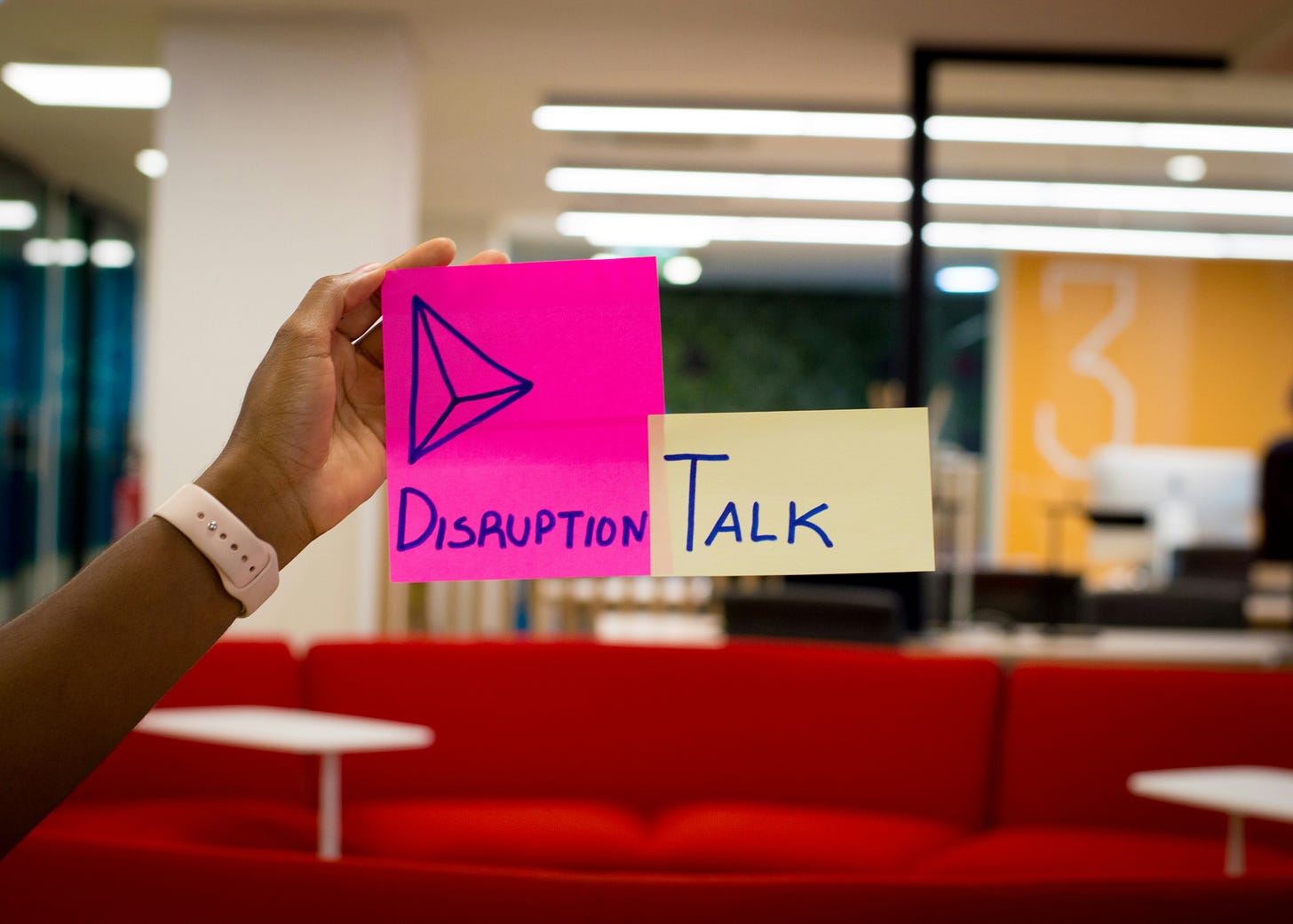Critical Importance of Disrupting Assumptions About You
Other people's beliefs and ours as well can be incorrect or limited and it can impact reputation

People are going to assume, sometimes incompletely or inaccurately. That goes for you and me and other people. This particular thinking error can cause problems, potentially big ones, for you and others that you care about in life.
A recent video I came across drove this home. The speaker in it wasn’t talking in the context of reputation and how it impacts our lives, yet her point triggered those thoughts in my mind for me to share with you.
First and briefly, she spoke about how we don’t necessarily connect all the dots in the moment, see what’s possible and how to accomplish it. It is possible to reframe our beliefs to see reality and not proceed with limited, or false, thinking.
A Different Context
Of course, you don’t have to address all incorrect assumptions about you. There may no valid reason or need to do so. The time and energy may not be worth it.
Other assumptions lead people to show reactiveness towards, which rarely does them good. Giving into instinctual emotions in place of poise, reason and actions leading to higher-probability effectiveness in a measured, intelligent response, is short sighted.
The assumptions that have caused or very likely will cause damage to trust, credibility, reputation, relationships and opportunities are certainly ones to strongly consider formulating a respectful response, once we are not feeling intense.
Observers, critics and enemies will mostly see and hear that intensity much more than they will hear, see or read your words and key points. They may not hear them at all or if they do, it will be in a diluted or negative way.
You don’t want to lessen the effectiveness of your response.

There will be people who are flexible-enough thinkers, ongoing learners, humble and cognitively, psychologically able to receive new information, process it well and change their minds to their currently-held (tainted or fully incorrect) assumptions.
Humans are complex though and there are many who don’t want to be disturbed with new information, facts, context and evidence because changing what they know, assume and believe is not something that they emotionally and psychologically want to do. So they don’t.
There may not be much you are able to do in some painful situations.

Disrupting assumptions requires communicating in a skilled manner that redirects the thinking patterns that people currently hold.
This could possibly be achieve because you are presenting yourself humbly and politely and in doing so, combined with the content of your words, earn a sufficient level of trust and credibility, becoming influential.
It may additionally occur because what you are communicating is not only not off-putting, it is received as persuasive.
This is far more likely to be accomplished (although not an absolute as an approach) when we model calm and respect and speak to them as human beings and their humanness first and foremost and help them turn down their amygdala part of their brain, which senses threats.

Maybe you have concrete evidence and proof to communicate. If you do and you bring it up, remember, don’t do so in with an angry and condescending tone. Don’t insult people. If you do, that will be their strongest takeaway. Sometimes the most helpful way to success is to either stop doing something or avoid it all together.
Remember that logic, facts, evidence and proof are valuable and at times, invaluable, but you have to keep at the forefront of your thinking, decision-making and communication that people are emotionally wired and driven, even if they don’t show it on the outside.
Meaning what, you ask? That when interacting, responsibly think of what their emotional drivers may be to be able to have their assumptions disrupted. Facts, truth and pleading aren’t always enough.
Respectful questions out of calm curiosity can help because we can come to better understand more specifically why people are making the assumptions they are making (whether we like what we learn or not).
This provides some level of increased clarity because you can gain meaningful, beneficial insight into the story that they are telling themselves.
Remember this: people’s assumptions, judgments and beliefs make sense to them.
But why? That’s part of problem solving you have in front of you.
Do this work, even if requires poise that you don’t have or don’t want to develop. If you learn to do it skillfully, in a manner where people will feel “safe” enough to open up to you, you can take a deep breath inside your mind, in response to the stress and communicate pleasantly and patiently in hopes of disrupting the assumption.
If you do build a sufficient level of rapport, even if you or they or both of you are feeling tense, their emotions and psychology may be receptive to learning and adjusting their conclusions and judgment.
Know This
You may have to help them save face because it is often difficult for people to change their mind, especially if they feel it is embarrassing or makes them look and feel weak.
Make it easier for them. Don’t make them feel bad with words, body language, facial expressions, sighs or a poor tone. Help them feel respected and smart for being able to reconsider an assumption and change their mind.
Michael Toebe is the specialist at Reputation Intelligence, helping individuals and organizations with matters of credibility, trust, decision analysis, communications, relationships and reputation.
You can DM him on Substack or contact him below for consulting, risk analysis, coaching, ongoing advisory, a variety of proactive and responsive communications and reputation (not legal) representation.






